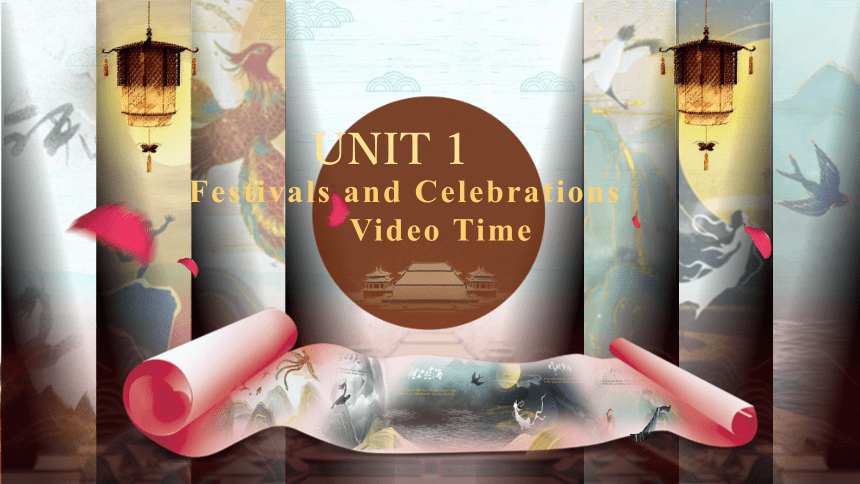(
课件网) e7d195523061f1c0c2b73831c94a3edc981f60e396d3e182073EE1468018468A7F192AE5E5CD515B6C3125F8AF6E4EE646174E8CF0B46FD19828DCE8CDA3B3A044A74F0E769C5FA8CB87AB6FC303C8BA3785FAC64AF54247716DE1DF50EE2514B79D5C471B7F9E134C19A2A0C645524B78502922DB5D4BBE1E28ED0529A36F561E6275B1A00576C00495D96ED76821BC 东方传说 unit 1 Festivals and Celebrations Video Time 英 文 介 绍 The Dragon Boat Festival 目 录 The Dragon Boat Festival The Content Origin of Dragon Boat Festival 端午的由来 Custom of Dragon Boat Festival 端午的习俗 The Dragon Boat Festival in other countries 其他国家的端午节日 1 2 3 一. Origin of Dragon Boat Festival 由来 介绍 The Dragon Boat Festival, also called the Duanwu Festival, is celebrated on the fifth day of the fifth month according to the Chinese calendar. This festival is to commemorate the death of QU Yuan, an upright and honest poet and statesman who is said to have committed suicide by drowning himself in a river. THE INTRODUCTION 端午节,也称端午节,是根据中国历法在第五个月的第五天庆祝的。这个节日是为了纪念屈原的死,他是一个正直诚实的诗人和政治家,据说他自尽于河中。 The Dragon Boat Festival, the 5th day of the 5th month in the Chinese lunar calendar, has had a history of more than 2,000 years. It is usually in June in the Solar calendar. 历史 端午节是中国古老的传统节日,始于春秋战国时期,至今已有2000多年历史。通常在阳历的六月份。 HISTORY Today, Dragon Boat Festival in the Chinese people is still a very popular grand festival. Country attaches great importance to the protection of intangible cultural heritage, May 20, 2006, the State Council approved the inclusion of the folk first batch of national intangible cultural heritage. 时至今日 时至今日,端午节在中国人民中仍是一个十分盛行的隆重节日。国家非常重视非物质文化遗产的保护,2006年5月20日,该民俗经国务院批准列入第一批国家级非物质文化遗产名录。 TODAY 二. Custom of Dragon Boat Festival 习俗 Hanging Pictures of Zhong Kui 悬挂钟馗像 Hanging Calamus and Moxa 挂艾叶、菖蒲 Dragon Boat Race 赛龙舟 The Culture of Zongzi 粽子 Spice Bag 香囊 Realgar Wine 雄黄酒 Travel sickness 游百病 Hanging Pictures of Zhong Kui 悬挂钟馗像 Zhong Kui is right in the south. In Chinese folklore, God can drive away evil spirits. In the old days, Chinese folk often hung Zhong Kui's image to ward off evil spirits and eliminate calamity. 钟馗,字正南,中国民间传说中能打鬼驱除邪祟的神。旧时中国民间常挂钟馗的像辟邪除灾。 Hanging Calamus and Moxa 挂艾叶、菖蒲 Acorus is a Chinese folk festival custom, in the Dragon Boat Festival with the leaf in the hall hanging in the hall, cut Aili tiger shaped or cut color for small tigers, pasted with AI leaves, women strive to wear, in the secluded evil drive miasma. Using calamus as a sword and inserting it on the door couch, there is the magic effect of exorcism. 挂艾叶菖蒲是中国民间节日习俗,在端午节以艾叶悬于堂中,剪艾力虎形或剪彩为小虎,贴以艾叶,妇人争相戴之,以僻邪驱瘴。用菖蒲作剑,插于门榻, 有驱魔法鬼之神效。 Dr ... ...

